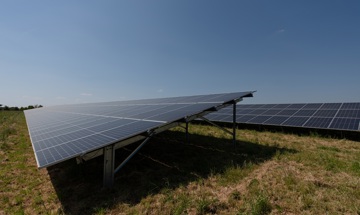Zonal pricing will only generate more problems for our energy industry
The UK’s energy market has been on a roller coaster over recent years with price shocks, supplier failures, and rising costs, heaping extraordinary pressure on households and businesses alike.
The collapse of Rebel Energy last week, alongside the latest price cap increase, is another reminder that tough choices lie ahead for policymakers seeking to bring down the cost of energy.
We must do everything we can to avoid exacerbating this burden. That means resisting superficially attractive interventions that risk making the situation worse—such as zonal energy pricing—and being wary of siren calls to crudely shift policy costs from electricity to gas. Both would increase costs for consumers.
For years, we’ve called for a fairer energy system that encourages efficiency and cuts complexity. No standing charges, one price for electricity and gas, and a social tariff to help those struggling. That’s why we oppose these proposals—which are a hobby horse for some, but a Trojan horse for consumers, adding cost and complexity.
"While zonal pricing threatens to create new distortions, we must also resist calls to shift existing policy costs from electricity onto gas."
Chris O'Shea, Group Chief Executive
The theory behind zonal pricing aims to reflect local supply and demand to boost renewable investment and grid efficiency. But in reality, it risks deep inequalities and higher prices for consumers in regions with fewer renewables. Instead of simplifying, it creates a postcode lottery where those in industrial areas pay more than low-demand regions with abundant wind and solar.
As well as increasing costs, it is also unclear how this approach would align with the national price cap. Would we need 12 different caps?
Supporters of zonal pricing argue it will incentivise consumers to adjust energy use based on local prices. But nearly half of UK households still lack a smart meter and focussing on faster rollout and flexible tariffs would manage demand more effectively. Supporting heat pump adoption is right – but we shouldn’t penalise those who can’t move away from their boiler.
The idea businesses will relocate for cheaper energy is unrealistic. They need skilled workers, infrastructure, and services—and if they did move, funding new roads, hospitals, and schools would raise taxes. Investors want stability—not a twilight zone that complicates planning and funding.
While zonal pricing threatens to create new distortions, we must also resist calls to shift existing policy costs from electricity onto gas.
This idea is again superficially attractive but would be another market distortion—forcing poorer gas users to subsidise wealthier electricity customers. Levies today reflect electricity decarbonisation costs, so if they need to be on bills, it’s right they’re on electricity bills. Shifting them to gas just to raise its price is a weak argument.
Robbing Peter to pay Paul has never been a good idea. Instead, a fairer approach would be to move policy levies into general taxation, ensuring the costs of the energy transition are distributed equitably rather than falling disproportionately on certain consumers.
Our focus at Centrica is on tackling costs in a way that protects consumers. That means accelerating investment in grid infrastructure and storage, which will reduce waste and improve efficiency. It means reforming the Contracts for Difference scheme so that renewable producers aren’t paid for energy that cannot be used. And it means resisting interventions that drive up bills needlessly.
At this critical moment, reform must be judged on whether it delivers affordability, sustainability, and investability. That means avoiding zonal pricing, rejecting unfair policy cost shifts, and focusing on practical, proven solutions that keep bills as low as possible.
We need a well-informed and transparent debate, grounded in evidence and consumer interest, not an experiment favoured by theorists, but paid for by the masses.
This article has been adapted from an original editorial published in The Times - originally printed 14th April.

Case Study
Secure, Sustainable and Affordable: 2025 Policy Positions
Sustainability

Case Study
In conversation with... Jessica Taplin
Energy crisis

Case Study
Getting Technical: Why market reforms should span both the downstream and upstream electricity market
Customers and Communities

Blog
Chris O'Shea: we will give 10% of British Gas Energy profits away to help our customers
Energy crisis

Case Study
Volunteering at Centrica - supporting causes that matter
Customers and Communities

Case Study
From apprenticeships to flexible retirement: A career in an inclusive workplace
Customers and Communities
